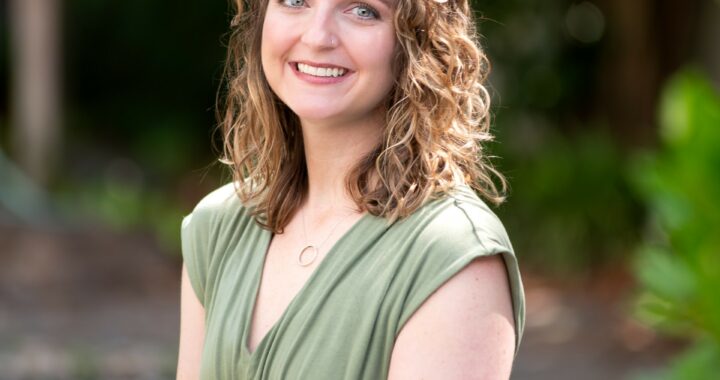La Ceiba Lends Help
4 min readBy Heather Brady
Professor Shawn Humphrey was floating between houses in a Honduran squatter village when he noticed something surprising: one of the houses had a television that was hooked up to a battery and a motorcycle that was parked outside.
Humphrey went inside and, with the help of a translator, spoke to Benjamín, (pronounced Ben-hah-MEEN) the father of the family that lived there. He had gone to a loan shark to get the money for the motorcycle, which he used to transport medical supplies to the nearby city of El Progresso, and was now worried that if he defaulted on his loan repayment, the bank would take everything.
It was during this conversation, as Benjamín’s wife was tearing up from the stress that the situation has caused their family, that Humphrey made a silent promise to fix the problem by creating a bank.
Humphrey, an assistant professor of economics, visited the village of Siete in January 2008 along with several UMW students to check up on new and cleaner stoves they had previously installed in several houses as part of the Indoor Air Pollution initiative that the students organized. He was making sure everyone had what they needed and that things were progressing well when the modern symbols of wealth in Benjamín’s house caught his eye.
The next night at dinner, he asked two students, senior Christine Exley and alumnus Justin Simeone, if they wanted to start a bank. They said yes.
“We had dinner in the lobby of the hotel where we were staying,” Exley said. “I remember having a long discussion about poverty and how to help the people of Honduras. Humphrey was a little loopy, and he slammed his fist on the table and said, ‘We’re going to build a bank.’”
Upon returning home, Humphrey organized the Two-Dollar Challenge, where students lived on $2 a day for a week and raised $6,750 for the loans that were to be given out as the first functioning part of the ‘microfinance institution’ called La Ceiba that students would create in Humphrey’s class during the upcoming fall semester. As he and his students discovered, they could no longer call the institution a ‘bank’ for tax reasons.
Over the summer between school semesters, Humphrey and the students who were preparing to work on the new project relied on juniors Rachel Mason from UMW and Megan Coolidge from William and Mary as their contacts for the people of Siete.
The two long-term Students Helping Honduras volunteers formed relationships and built a client base for the project, which was made easier because, despite the abject poverty of their clients, most of them had cell phones. Coolidge then joined the efforts of the class in the fall via a microphone from William and Mary, taking it as a distance-learning course.
“Economic development is founded on relationships,” Humphrey said. “Megan had a trust with the villagers that she passed to the class. We earned trust with the stoves, which was ultimately a very successful initiative. We said we’d do something, and we did it.”
The fall economics class, a 400-level experiential learning course, involved nine students. During the semester, they delegated tasks such as public relations, getting non-profit help, planning the loan awarding ceremony, operations and logistics to specific students.
“I was in charge of creating the Indoor Air Pollution follow-up survey and the survey to measure the poverty level for La Ceiba customers, to see if they’re moving out of poverty,” Exley said. “The whole class decided the [institution’s] policies. Most of our class time was spent discussing them.”
Exley explained that La Ceiba is a microfinance institution with an account in a much larger Honduran bank- the Banco Fincensa, where Cosmo Fujiyama, sister and partner to Mary Washington graduate and SHH founder Shin Fujiyama, has connections and a positive relationship.
“The clients are allowed to use identification cards that we made for them,” Exley said. “Since most of them are refugees from Hurricane Mitch, their identification was lost– if they did have some form of identification. I’m certain that most of them didn’t. The Honduran bank basically made up new rules for us so that it would work out.”
The 16 loans that the bank gave out were distributed to members of four solidarity groups of women to spread the responsibility of repaying the loans. Research showed women were more financially responsible and better at repaying loans than men, so they chose to limit the loans to women. But in structuring the loans, the class discovered that solidarity groups could be problematic as well.
“The biggest problem was the loan-default policy,” Humphrey said. “We spent the most time on developing it because of the concern about solidarity-group pressure.” In some instances, he added, members of the group lean on others not to default, using tactics such as physical threats, and even murder. For some, it can lead to suicide.
“We decided to use a client-based approach that has an appeals process if you default on your loan to get rid of this pressure,” he said.
“We want to see what works,” Exley said. “Economic development starts with a grassroots movement that implements something. It kind of works, and then you change it so it does work. I think La Ceiba is flexible, so if it works, we want to expand our client base and give more loans.”
“We don’t know if what we did was good,” Humphrey said. “We won’t know until we see the repayment rates. But over the summer, I did research as to how La Ceiba fits into the academic universe. This is a unique thing. The students had a complete say in everything from the mission statement to the non-profit status, and they endured poverty the likes of which this country hasn’t seen in years to put La Ceiba in place.”


